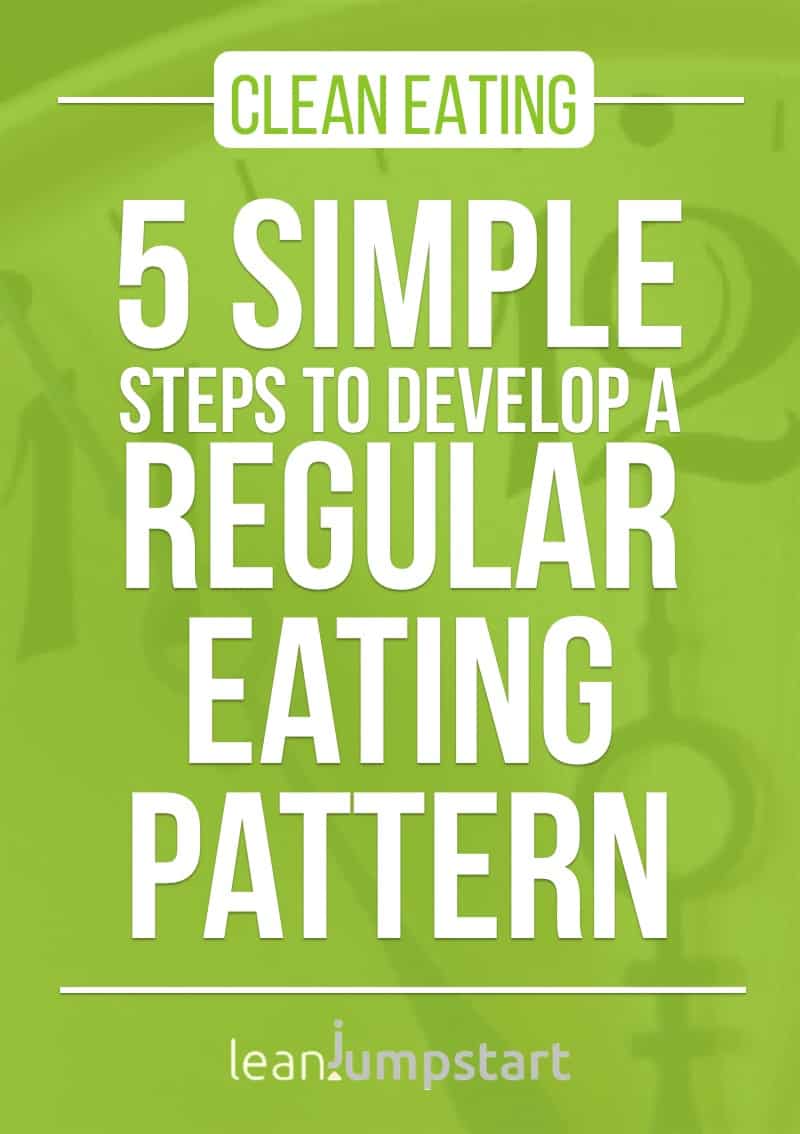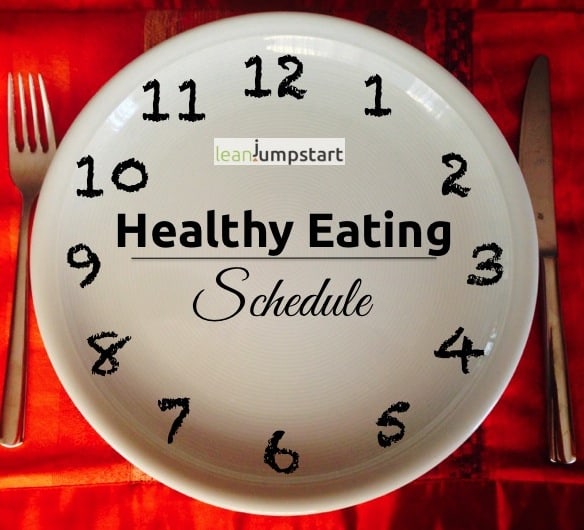What is an optimal eating schedule for smart weight management? How often should you eat? Is it five meals a day, or is it less? I know that when it comes to weight loss you want to focus on smart habits. And the frequency of meals seems to be an important aspect.
Which frequency of meals is best for you?
You find many recommendations for a clean eating diet that endorses five to six meals a day.
Recently, however, the three meals per day advocates have begun shouting louder once again. So, who is right?
Often these recommendations are presented with scientific studies backing a one-or-the-other approach. Sometimes it seems that the preached meal frequency by nutrition experts is dependent on the actual diet trend.
The best specific schedule for you cannot be determined by a solution targeted towards everybody. Of course, a healthy weight is mainly a question of food choices and daily calorie intake. From the nutritional and physiological point of view, both concepts have the potential to provide you with balanced nutrition throughout the day.
Intermediate fasting for people at the risk of diabetes
If you are at the risk of diabetes and toy with the idea to skip meals especially in the evening then the following approach is important to mention. There is a strong body of evidence suggesting that intermediate fasting, in combination with a mostly plant-based diet, can be especially effective when you want to lose weight. (1)
5 meals a day
If major fluctuations of your blood sugar levels are not an issue for you, I recommend five meals a day for clean eating and weight control. The reason for this is both simple and pragmatic; let me explain…
It is much easier to implement sustainable habits with a daily schedule consisting of five fiber-rich, smaller meals:
- A nutrient-dense breakfast is your springboard into a good start to a day that encourages positive behavior.
- Fruit is portable and can easily be eaten on the go, and it fits very well and naturally into your breakfast. Two servings of fruits per day are recommended. So this challenge asks not only for breakfast but also for at least one break.
- Clean, high-fiber snacks help you to replace the most unhealthy snacks you desire most often.
- Consuming more vegetables is a keystone habit for keeping in shape. You want to eat four to six servings of fibrous vegetables per day. This advice is easier followed with more meals spread throughout your day.
- Three servings of whole grains (e.g. brown rice, whole wheat bread) per day is a smart approach. Again, a higher frequency of meals will give you more flexibility in reaching this goal.
- You want to get sufficient monounsaturated fats by consuming one tablespoon of nutritious nuts for breakfast. You could eat part of your portion of nuts in your muesli for breakfast. The other serving could be part of your afternoon snack.
- Sitting down for a high-fiber meal with lean protein and drinking water often goes hand in hand. With a higher meal frequency, you increase your chances of drinking more water, which is another keystone habit for weight loss or maintaining your weight.
4 advantages of 5 smaller meals a day
There are many more arguments that support the five meal a day eating pattern. Here are just a few:
- The more meals you eat daily, the more diverse are the nutrients you consume. Doing this daily will guard your body against deficiencies.
- Frequent smaller meals prevent major fluctuations of your blood sugar levels. Higher fluctuations usually result in a loss of productivity and cravings. This is a huge issue also for emotional eaters. With smaller portions, it is eventually easier to remain satisfied and satiated throughout the day.
- If you are not extremely hungry when you start your meal, you can eat rather slow and thus it becomes easier to realize when you are full.
- Smaller meals prevent typical fatigue and lethargy that may occur after a heavy meal. Afterward, you’ll feel more energetic.
You can easily gain weight with uncontrolled eating patterns
Many people eat more than five meals a day, but often they don’t even realize they’re having a meal. The bits may be small but nevertheless calorie rich. A mini-donut here, a chocolate bar there, a small Italian salad with lots of olive oil, then a hand full potato chips later…
In this way, you can consume way too much without ever having the feeling that it was enough. Such a frequent schedule can result in substantial weight gain.
Baby Steps: How to develop a regular pattern
Regular meal times are more important than frequency. Set a meal time and try to sit down to eat breakfast and dinner at the same time each day. Below is a simple five-step habit change that will help you develop a regular schedule with a maximum of five meals per day.
- Start your day with a nutrient-dense breakfast.
- Decrease the main meal portions and add instead snack times.
- Here is an example of a smart schedule to follow:
Breakfast: 06:30 a.m. – 08:00 a.m.
Late Morning Break: 09:30 a.m. – 11:00 a.m.
Lunch: 12:30 p.m. – 01:30 p.m.
Afternoon Snack: 03:00 p.m. – 04:00 p.m.
Dinner: 06:00 p.m. – 07:30 p.m. - Plan your main meals ahead of time using a weekly meal planner in combination with a running shopping list.
- Take your time for your meal, sit at a table, and practice mindful eating; pay attention to your satiation.
- See it as a gift if you can have regular meals (e.g. breakfast and dinner with other members of the household). This wonderful habit will reward you with maintaining or developing strong family relationships.

4 extra tips for regular meal frequency
- Opt for eating meals and snacks with mainly fiber-rich, healthy foods that have a long satiation effect.
Click through to learn about the top 100 best high fiber foods. - No additional snacks beside your late morning and afternoon snacks should be consumed.
- Find strategies for the most dangerous snacking time after dinner in front of the TV.
- If you know you’ll have a busy week ahead of you, consider freezer cooking – prepare big batches of food on Sunday and freeze them so you can eat them through the week.
I’d love to hear from you!
I’d love to read your thoughts in the comment section below. How often do you eat daily? Do you tend to five meals a day or three? Which schedule have you tried, and did it work for you?



